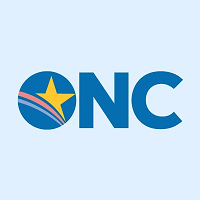 By Jawanna Henry and Wei Chang, ONC
By Jawanna Henry and Wei Chang, ONC
Twitter: @ONC_HealthIT
Complete and accurate information on a patient’s social determinants of health (SDOH), including specific needs related to food, housing, and transportation insecurity, can help their clinicians and social services providers take a more holistic approach to an individual’s health and well-being. In order to meet demand for an extensive number of SDOH use cases, the healthcare ecosystem is working intensely to mature SDOH data exchange standards. In parallel, it is important for continued investment in the use of these standards to test them out and to develop innovative methods that can enhance the comprehensiveness of health IT systems and improve care referrals and bi-directional exchange across organizations. Specifically, one that emphasizes a person-centric approach and coordinated medical and social services, interoperable systems, and access to and use of appropriate information at each point of care.
The University of Texas at Austin’s Dell Medical School (Dell Med) answered this call as a 2021 recipient of ONC’s Leading Edge Acceleration Program (LEAP) in Health IT. Dell Med is developing a comprehensive and integrated information system to manage patients’ access, consent, and navigation using a mobile digital platform using non-proprietary standards for implementation with a person-centric approach to the design.
The system’s design will help clinical providers identify patients’ social service needs, make referrals to social service organizations to address those needs, and receive information back from the social service organization, thereby closing the loop on the social service referral. This “closed loop” system is known as Fast Healthcare Interoperability Resources® (FHIR)-enabled Social and Health Information Platform (FHIRed-SHIP).
Dell Med is building on an existing patient engagement platform—the FHIRedApp funded through the LEAP 2019 award. They developed FHIRedApp as a patient engagement technology to make it easier for patients to gain and provide access to their health data. The FHIRed-SHIP app adds a social and health information component to facilitate sharing across sectors and integrate clinical and social sector data. The Dell Med team is applying the same development approach used for the FHIRedApp, which included the use of community engagement studios, human-centered design, and engagement with the project’s community advisory group. The model identifies patients, providers, purchasers, payers, policy makers, developers, and principal investigators as key stakeholders from a patient-centered outcomes approach.
FHIRed-SHIP will demonstrate the implementation of a patient-centric “closed-loop” referral management platform using open, non-proprietary standards, community-supported health information exchanges, and modern internet-based delivery systems, including:
- FHIR application programming interfaces,
- Nationally available social services referral digital platforms,
- Regional health information exchanges (HIEs), and
- Secure responsive mobile and web apps.
Additionally, the project team will partner with two regional HIEs in Texas and Louisiana to demonstrate scalability and interoperability of the solution. Data captured on FHIRed-SHIP from social needs assessments, social service referrals, and health care utilization will be used to assess the potential impact on patient outcomes and social service referrals.
You can learn more about this project by watching the 2022 ONC Tech Forum recording of the session titled “Real World Implementations and Innovation Through LEAP” and engaging with the team as part of the Gravity Project Pilots Affinity Group. For regular updates to the project, please visit the LEAP webpage.
This post was originally published on the Health IT Buzz and is syndicated here with permission.
